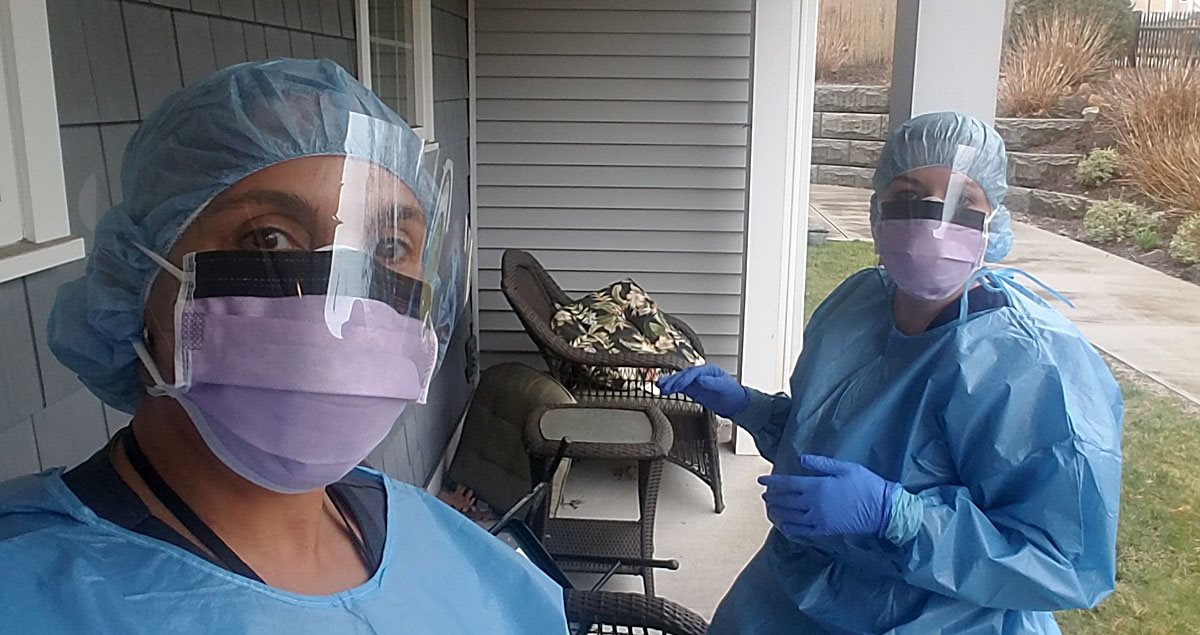 BIG DATA
BIG DATA
 BIG DATA
BIG DATA
 BIG DATA
BIG DATA
Data analytics are often cast in the cold light of financial forecasts and factory plans, but the COVID-19 pandemic has offered a look at how the same tools can be used to better the human condition.
At Commonwealth Care Alliance Inc., a Massachusetts-based, not-for-profit healthcare organization, enterprise data warehousing and visualization are literally saving the lives of people who might otherwise fall through the cracks of an overloaded system.
CCA is an insurer and primary health care provider that serves nearly 40,000 of the highest-risk patients in the state: people who receive both Medicaid and Medicare benefits or elderly residents with limited healthcare coverage. Most are either elderly or disabled and all are low-income. More than 60% of CCA members have disabilities and two-thirds of members under age 65 experience severe mental illness. That puts them at the highest risk of dying from COVID-19.
As the pandemic was forcing shutdowns of critical support facilities that those people depend upon two months ago, CCA found itself in a race with time.
“We needed to identify every single one of our members, know where they were and what services they needed,” said Valmeek Kudesia, a physician who is also CCA’s vice president of clinical informatics and advanced analytics. “We were racing the clock because once those services begin to fall away that person becomes at risk.”
Further complicating the problem was that many of the patients CCA needed to reach lack cell phones, email accounts or computers. For many, the only means of contact is home phone numbers or personal visits. CCA relies on about 400 clinicians to monitor its members, such as nurses Kim H. and Nicola T., who are shown above preparing to test members at a group home.
In Massachusetts, which has recorded the fourth-largest number of coronavirus infections and third-highest number of deaths in the U.S., safety nets were hit particularly hard. Support services such as Meals On Wheels America and community daycare centers struggled to continue operations amid lockdown orders and staff members falling sick.
The dilemma: “How do you take 40,000 people who are all at risk and make sure that those that need extra attention and focus are being attended to?” said CCA Chief Executive Officer Christopher Palmieri.
Between its own records and the many updates coming from state and local agencies, the alliance had no shortage of data, but it lacked a way to knit all those sources into a comprehensive information model. Its needs went well beyond the clinical details typically held in electronic health records such as visits and prescriptions.
Staff members also had to understand “things like how many times did a person receive Meals On Wheels, go to adult day health or were called by a relative” to assess their state of mind, Kudesia said. “We needed to know which high-risk members have not been reached, who had sufficient food and who was in touch with people who could help them.”
The organization had begun developing an expanded patient monitoring system a year ago and that project went into high gear. CCA had settled on Google LLC’s BigQuery data warehouse running on the Google Cloud Platform with data visualization software from Looker Data Sciences Inc., which Google acquired in February. The data analytics team liked the combination of BigQuery’s speed and Looker’s semantic modeling layer as well as the visualization provider’s strong compliance record.
The clinician platform CCA built provides a holistic view of each member that includes medical conditions, behavioral characteristics and social needs. “It’s a comprehensive view around a single individual at a point in time plus how things have changed over time,” Kudesia said.
Data elements include outreaches, phone call records, telehealth and details of palliative care, which is specialized care for people living with serious illnesses. “We’ve been able to knit the timelines to tell the full story of a person who’s vulnerable, what we’ve done for them and what services they receive,” Kudesia said.
Clinicians now have tailored visualizations that consolidate clinical data with localized COVID-19 information and highlight the most urgent cases that need attention, such as members in high-infection areas or those require special services.
Predictive analytics enable the organization to spot potential problem areas before they develop. For example, patients requiring oxygen can only keep small amounts of the compressed liquid form in their homes because of the risk of fire. They rely on frequent deliveries to keep them alive. With supply chain threats growing, “We were able to reach out proactively to the companies that deliver oxygen, ask about their ability to continue to deliver and request that they leave additional supplies,” Kudesia said. “We have those members in our sights, and they are not going to slip.”
Palmieri and Kudesia wouldn’t estimate how many lives the analytics initiative has saved but said that 97% of members classified as high-risk have been contacted and are being actively monitored. The need to serve patients remotely has accelerated the use of technologies like telemedicine, and Palmieri believes the entire healthcare system will benefit from the growing embrace of digital tools by providers and patients alike.
“The pandemic will eventually go but the tools will stay,” he said. “Our company and others will decide that this is a good investment.”
THANK YOU